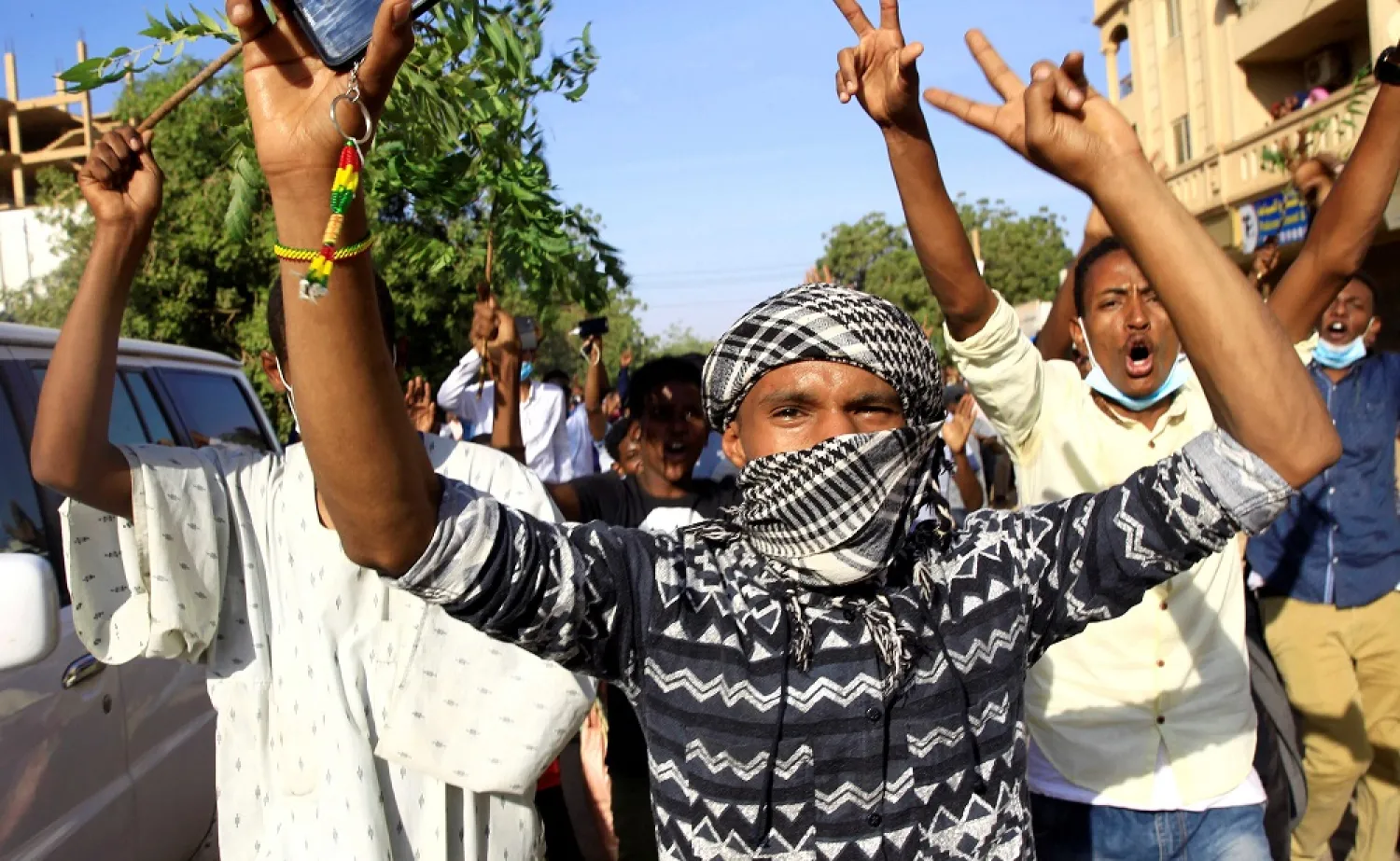Tensions have increased in Sudan’s eastern key agricultural state of Al-Qadarif in wake of protests in the past two days over the rising cost of living.
On Thursday, students held demonstrations denouncing the hike in prices, scarcity of basic commodities, especially fuel and bread, and frequent electricity cuts.
Protests first broke out in Al-Qadarif’s main market, where demonstrators broke into shops and blocked streets.
Images shared on social media showed burnt car tires and dozens of angry protesters breaking objects and storming shops.
The police fired tear gas and used rubber bullets when protesters were seen looting and attacking government institutions and a number of banks.
An eyewitness told Asharq Al-Awsat that following hit-and-run attacks and chases, security forces were able to control the situation.
They deployed massive forces in the city center and dispersed the protesters, he added.
An official statement by the state of Al-Qadarif condemned the “acts of rioting” when protesters blocked roads, burned tires and set up barricades.
The police had to intervene to protect the property.
“Forces maintained security with high professionalism, which allowed them to control the situation,” the statement added, threatening to take legal measures against “saboteurs.”
Meanwhile, farmers in Al-Qadarif are preparing to organize a sit-in on Saturday to press for the sacking of the state governor if he does not respond to their demands.
Protesters have denounced the policies adopted by the government in their state, which is one of the largest agricultural regions in Sudan.
Deputy Chairman of the Farmers’ Committee Ahmed Abdul Rahim al-Awad told Asharq Al-Awsat that farmers want to be consulted by the authorities in agricultural policies.
He said the farmers want the authorities to recognize their legitimate committee.
Awad explained that the state government policies have called for doubling fees on crops and imposing a large hike on agricultural project fees. So far in 2021, these fees have amounted to 117,000 pounds to each 1,000 feddans. The figure had previously stood at 16,000 pounds.
Moreover, he said the state governor refuses to meet with the farmers and recognize their demands, forcing them to escalate their actions and demand his dismissal.
The farmers held a press conference to explain their case, vowing that they will escalate their actions and increase popular pressure, possibly even resorting to an open-ended sit-in and shutting down the city.
Awad denied that the farmers were politically-motivated, saying that their demands are legitimate and related to agricultural affairs in the state.









